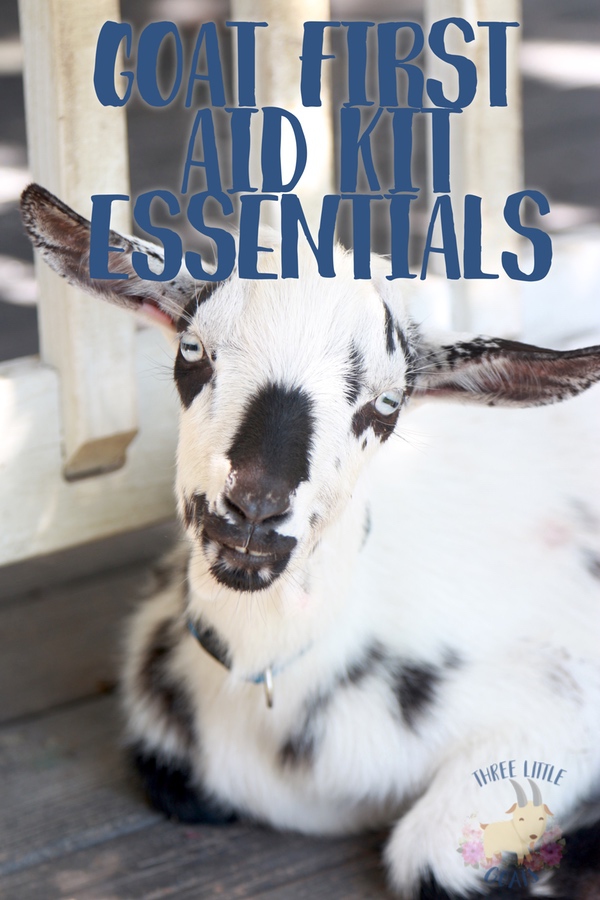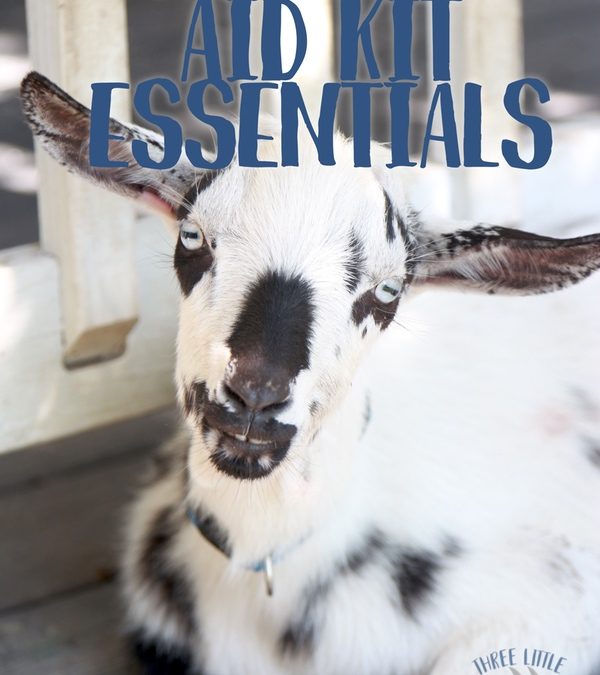This post may contain affiliate links, to learn more about them, check out our Disclosure.
Goat First Aid Kit Essentials
Raising goats can be fun, but it can also be difficult at times. Goats are susceptible to many different illnesses, and if not treated quickly, and correctly, they can be deadly. In order to give a sick goat a fighting chance, there are a few things that I always keep on hand for emergencies. Having a Goat First Aid Kit can mean the difference between life and death.

Many things on this list can be found online or at your local feed store, but some do require a prescription, so having a knowledgeable vet to contact is important.
Over the Counter Meds
Fortified Vitamin B Complex – The key to this is ensuring that it is a Fortified complex, and it is great to have on hand. Goats produce their own Vitamin B1 and Vitamin b12, which help to keep their rumens healthy. Vitamin B1, also known as thiamine is crucial to a goats health. If they develop a thiamine deficiency, it can become life threatening.
LA 200 – Having a broad spectrum antibiotic is great to have on hand as well. It can be used to prevent infections from wounds, or help to treat things like pneumonia.
C&D Antitoxin – You may never have to use this medication, but it is one that you will always want to keep on hand. C&D Antitoxin treats enterotoxemia (overeating disease), which can kill a young goat quickly.
Molasses – Good old fashion blackstrap molasses has many uses on our farm. We use it to make treats for our goats, but it can also help to prevent dehydration. Adding a little to warm water can encourage a goat to drink when they are ill and because of the sugars, can help give them a boost of energy. This is also good to give after a goat had kidded.
Probios – Probios can help to get a rumen back in working order.
Activated Charcoal – There may be an instance where a goat gets to a plant that is poisonous, this can help absorb the toxins from the plant.
Blu-Kote – Blu-Kote can be applied to wounds to prevent infection or flies.
Maalox – Can help to ease an upset rumen and help to treat diarrhea.
Tools
Syringes and Needles – Some of the medications listed will need to be administered via injection. I keep a variety of syringes sizes as well as 1-inch, 20 ga needles on hand at all times.
Thermometer – When a goat is sick, it is important to determine if they are running a fever. Having a good, reliable thermometer can be a great asset to your goat first aid kit.
Drencher – A drencher can be handy if a goat stops drinking water. It is also an easy way to administer oral medications.
Prescriptions
Thiamine – While Fortified Vitamin B is good to have on hand, if your goat has a full-blown case of Polio, you will want to have Thiamine on hand.
Banamine – This is a prescription level pain killer. If your goat becomes injured, it is good to have it on hand to help ease their pain.
Di-Methox 40% – This is is used as both a cure and prevention for coccidiosis. There are over the counter options for coccidiosis, but this works the best with the least amount of side effects.
Is there anything that I missed? What are your essentials for your goat first aid kit?
Please note, this post is not to be used as a substitution for vet care. In any case of a sick goat, always contact your vet for medical advice.



